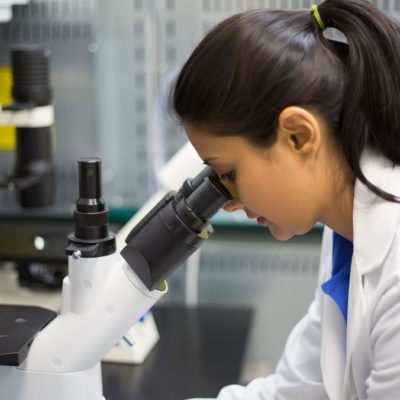SOP for Clinical Research Management Plan
- Purpose: The purpose of this Standard Operating Procedure (SOP) is to provide guidelines and instructions for the development and implementation of a clinical research management plan. This plan ensures the efficient and effective management of clinical research studies, maintaining compliance with regulatory requirements and ensuring the safety and well-being of study participants.
- Scope: This SOP applies to all individuals involved in the management of clinical research studies within the organization, including principal investigators, study coordinators, data managers, regulatory affairs personnel, and other relevant stakeholders.
- Responsibilities:
3.1 Principal Investigator:
- Develop and oversee the clinical research management plan.
- Ensure compliance with applicable regulatory guidelines and institutional policies.
- Provide study oversight and supervision.
- Maintain communication with study team members and stakeholders.
3.2 Study Coordinator:
- Assist the principal investigator in developing and implementing the research management plan.
- Coordinate study activities and ensure adherence to the protocol.
- Collect and manage study data.
- Maintain study documentation and records.
3.3 Data Manager:
- Develop data management plans and procedures.
- Oversee data collection, entry, and quality control.
- Ensure the security and confidentiality of study data.
- Generate study reports and data summaries as required.
3.4 Regulatory Affairs Personnel:
- Ensure compliance with regulatory requirements and guidelines.
- Facilitate the submission and maintenance of regulatory documents.
- Assist in obtaining necessary approvals from regulatory authorities and ethics committees.
- Monitor and report adverse events and protocol deviations.
- Clinical Research Management Plan Development:
4.1 Protocol Development:
- Develop a detailed study protocol, including the study objectives, design, methodology, and statistical considerations.
- Define inclusion and exclusion criteria for study participants.
- Develop study procedures, data collection tools, and case report forms.
4.2 Study Budget and Timeline:
- Prepare a comprehensive study budget, considering all anticipated expenses.
- Develop a timeline for study activities, including recruitment, data collection, analysis, and reporting.
4.3 Study Team Formation:
- Identify and recruit qualified study team members.
- Assign roles and responsibilities to team members.
- Conduct training sessions to ensure understanding of study procedures and compliance with regulatory requirements.
- Study Implementation:
5.1 Participant Recruitment and Informed Consent:
- Develop recruitment strategies and identify potential study participants.
- Obtain informed consent from eligible participants.
- Maintain documentation of informed consent processes.
5.2 Data Collection and Management:
- Collect study data according to the protocol and data collection procedures.
- Ensure accurate and timely entry of data into the study database.
- Implement data quality control measures to ensure data accuracy and integrity.
5.3 Study Monitoring and Quality Assurance:
- Conduct regular study monitoring visits to ensure adherence to the protocol, regulatory requirements, and standard operating procedures.
- Perform data validation and source document verification.
- Implement corrective and preventive actions as necessary.
5.4 Safety Reporting:
- Monitor and report adverse events and serious adverse events to the appropriate regulatory authorities and ethics committees.
- Ensure timely reporting of safety information to study participants and investigators.
- Study Closure and Reporting:
6.1 Study Completion:
- Conduct a closeout visit to ensure all study activities are completed.
- Archive study documentation and maintain records as per regulatory requirements.
6.2 Data Analysis and Reporting:
- Analyze study data according to the pre-defined statistical plan.
- Prepare study reports, including interim and final reports.
- Communicate study results to relevant stakeholders, sponsors, and regulatory authorities as required.
- Documentation and Record Keeping:
- Maintain complete, accurate, and up-to-date documentation of all study activities.
- Ensure proper storage, retention, and archiving of study documents in compliance with regulatory requirements.
- Amendments and Deviations:
- Document and report any protocol amendments or deviations to the relevant authorities, ethics committees, and sponsors.
- Implement necessary changes to study procedures and documentation.
- Training and Education:
- Conduct regular training sessions to ensure study team members are updated on regulatory requirements, study procedures, and any protocol changes.
- Promote a culture of continuous learning and professional development among study team members.
- References:
- Maintain a reference library of relevant guidelines, regulations, and standard operating procedures.
- Ensure study team members have access to the necessary resources for conducting clinical research.
- Compliance and Audits:
- Conduct periodic internal audits to ensure compliance with regulatory requirements, standard operating procedures, and study protocols.
- Implement corrective and preventive actions based on audit findings.
- Review and Revision:
- Regularly review and update this SOP to reflect changes in regulatory requirements or organizational policies.
- Seek input from relevant stakeholders during the revision process.
- Approval: This SOP has been reviewed and approved by [Name/Position] on [Date].
- Distribution: This SOP shall be made available to all relevant personnel involved in clinical research management within the organization.
Note: This SOP is intended as a general guideline and should be adapted to meet the specific requirements of the organization and the clinical research studies being conducted.
You may be interested in…



